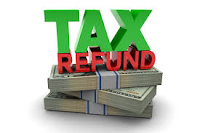On May 30, 2018 we posted TheUs Is Now The 2nd Largest Tax Haven And Is Scheduled To Be Blacklisted By TheEu!, where we discussed that the U.S. is the world’s second-largest tax haven, behind Switzerland and just ahead of the Cayman Islands, according to a report released May 15, 2018.
On May 21, 2019 we posted Another IRS Summons on Behalf of a Foreign Government, where we discussed that France, Norway and now Finland have successfully petitioned the U.S. District Court to authorize IRS summonses to uncover the identities of Finnish residents using U.S.-issued payment cards in Finland. The DOJ and IRS are these mutual legal assistance treaty (MLAT) requests under various U.S. Tax Treaties at the request of foreign governments.
Now according to Times.KY, it is the US' turn to be on the defensive. Other countries are using similar tools to those America once employed to reveal un-taxed money stashed by their own citizens in the world’s largest economy.
After the US passed FATCA 2010 that required foreign financial firms to spill the beans on American clients, more than 100 other countries signed up to the “Common Reporting Standard” (CRS), and now swap tax-relevant financial information with each other.
America, however, did not join the CRS. Instead it shares information on the foreign clients of American banks under FATCA’s reciprocal provisions. But sharing is patchy; a lot of countries get nothing. Combine that with the high level of anonymity offered by American shell companies, and it is hardly surprising that America has become the destination of choice for many tax evaders. One tax expert reckons that “over 90% of assets avoiding the CRS have been herded into the USA”.
Other countries are now finding that there are legal tools at their disposal to information on their citizens who have assets in the US.
One Is The So-Called John Doe Summons
This American provision assists tax authorities going after “a particular person or ascertainable group or class of persons” whom they suspect of financial wrongdoing, but whose identities are unknown. If approved by a court, the summons forces banks to hand over names
Until now the biggest user of such summonses in tax cases has been America, which, for instance, used the procedure in 2008 to prise open Swiss bank secrecy.
Other countries suffering tax leakage will be looking more closely at this procedure. Any of the 90 countries with a ratified bilateral tax treaty with America can use it, though some seem unaware of the option. By contrast, America has agreed to exchange information with only 47 countries under FATCA.
It Could Help To Break Open Not Only Dodgy Bank Accounts But Also Trusts And Insurance Policies,
Which Are Also Commonly Used To Hide Capital.
There could still be obstacles, for instance if an account is owned by an entity rather than an individual. But banks issued with a summons are required to investigate who stands behind account-holding shell companies. Due-diligence rules designed to curb money-laundering and the financing of terrorism, issued by FinCEN, a federal agency, already require banks to know the identity of such “beneficial” owners (though not all seem to do so). A shell-cracking bill picking up momentum as it passes through Congress would also help improve corporate transparency.
So don't be surprised if more countries take the John Doe route to discover their tax resident's assets which are located in the US.
Have an International Tax Problem?
Contact the Tax Lawyers at
Marini & Associates, P.A.
Read more at: Tax Times blog










